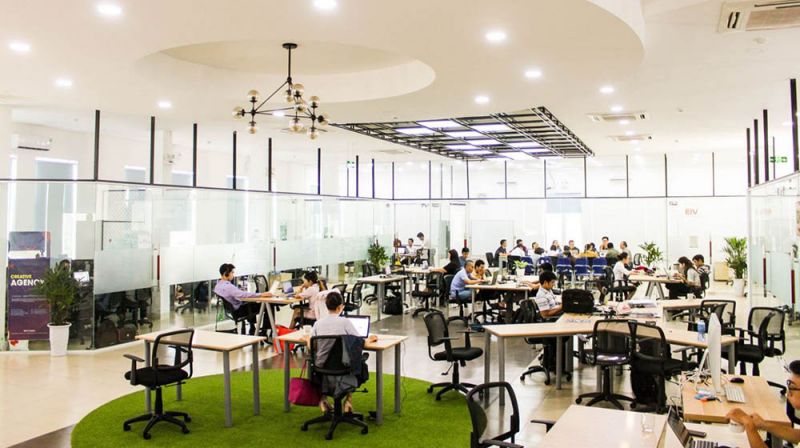3 driving forces for the office market to grow steadily in 2021
In the context of macroeconomic recovery, the office market maintains stable gross rents and average occupancy rate. Many businesses have changed from fixed working style to flexible one to prioritize efficiency through the requirement of less fixed workspace and many shared areas.
Macroeconomic recovery
According to the Economist, in 2021, Vietnam's GDP will increase by 5.2% year-on-year, slower than in recent years due to the effect Covid-19 on economy. FocusEconomics forecasts that Vietnam will have an average GDP growth of 6.7% per year in the period of 2021 - 2025 and continue to be one of the leading economies in Southeast Asia.
Along with that, Hanoi continues to improve the business environment and support investors. In 2020, the city attracted USD3.72 billion of FDI. The Government's survey on Business Trends of enterprises in the processing and manufacturing industry in the fourth quarter of 2020 showed that 41% of them was rated to have business activities better than the previous quarter; while 35% said they was still stable and 25% admitted to face difficulties. They have confidence in improvements for the first quarter of 2021 as 43% expect their business performance to improve, 38% remain neutral while 19% forecast difficulties.
Mr. Matthew Powell, Director of Savills Hanoi said that in Hanoi market, Savills was extremely active in the commercial lease sector in 2020. This result was largely attributed by the positive growth of the technology, software production and operation, life insurance and e-commerce sectors despite Covid-19.
Mr. Matthew Powell commented: “We expect the office market to continue to develop stably in 2021, with the context of the Covid-19 epidemic being less severe, increase in the number of international visitors increases, as well as favorable economic and demographic advantages in Vietnam. The growth of the offices for lease is mainly driven by the fact that customers are headquartered in Vietnam and they are confident enough to expand their business in Hanoi.”

In the context of macroeconomic recovery, the office market maintains stable gross rents and average occupancy rate.
Stable gross rents and average occupancy rate
Savills data shows that all segments of the office market have achieved certain growth in the past 5 years. Specifically, Grade B segment has the strongest growth of 6% per year while Grade A increases 4% per year and Grade C increases 3% per year. The total supply of the office market reachs nearly two million square meter, up 2% QoQ and 6% YoY following the entry of Grade A project International Center with 7,000 m2 in the central area and Grade B project Century Tower with 33,000 m2 in the inner city area.
Notably, Savills records a lot of interest in the Grade A office market from Korean and Japanese investors and enterprises in Hanoi. Investors and companies are also actively developing and investing in high-quality office supplies in major markets such as Hanoi and Ho Chi Minh City.
Flexible response of enterprises
Savills data also shows that different industries have different lease demands. Hotels and tourism industries that are the most serious affected require less space, while services, information technology and e-commerce continue to grow.
Hoang Nguyet Minh, Director of Commercial Lease Department of Savills Hanoi commented: “A lot of companies have changed their working style towards more flexible one instead of just working at a desk. Office requirements will also be based on criteria of work efficiency and convenience in working space, with particular focus on developing shared areas instead of having a clear division. The tenant enterprise group may consider an annual review of rental requirements and status to keep pace with market developments.”
The trend of working from home is not clear due to the timely control of Covid-19 in Vietnam. However, many companies see this as an opportunity to downsize, reduce operating costs and invest more in technologies.
The pandemic is driving demand for more flexible and creative office spaces and employee-friendly environments to boost productivity and creativity. This is challenging the old buildings. Landlords who proactively differentiate themselves with complementary services and strictly adhere to health and safety will increase their competitiveness. Lease terms will be adapted more quickly to support flexible spaces.
















